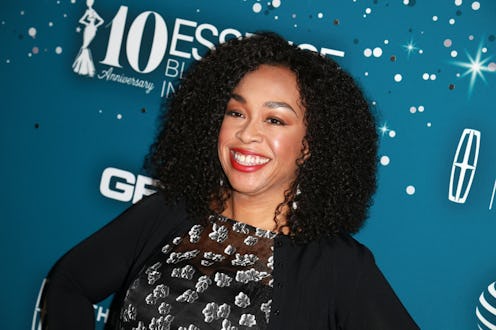Entertainment
Shonda Rhimes Takes On An Important New Role

She's written television shows about law, politics, and medicine with such flair, finesse, and jaw-dropping style she basically owns Thursday nights. Yet with great power comes an even greater responsibility to give back. For TV wonder woman Shonda Rhimes, teaming up with Planned Parenthood to raise awareness about women's health issues was a no-brainer. The ABC producer is now a member of Planned Parenthood's national board where she will expand her work to uphold the organization's mission of providing women with "the information and care they need to live strong, healthy lives and fulfill their dreams," according to its official website.
Rhimes told Elle magazine she jumped at the opportunity to help the Planned Parenthood Federation of America when the organization's president, Cecile Richards, invited her to take on the role. "The fact is that women's health is under fire right now," Rhimes told the magazine. "And so to me, it feels like it's important to help fight back."
Richards explained Rhimes was already helping out the Los Angeles board, speaking at rallies, protests, roundtables, and other appearances. However, her dedication to tell stories about the LGBT community, women, and people of color on TV caught her eye. "To me, the most important work we can do now at Planned Parenthood is make sure that the voices of all those folks are heard, particularly in this political environment," Richards said.
Rhimes confronts innumerable subjects that affect women on her hit shows Grey's Anatomy, Scandal, and How to Get Away With Murder. Yet whether she is depicting Cristina Yang or Olivia Pope undergoing an abortion after making the decision on their own or Annalise Keating losing her baby during childbirth, Rhimes said it is her obligation to responsibly and accurately portray medical procedures. In doing so, Rhimes' work not only stays at the forefront of controversial conversations involving women's reproductive rights, but she also reaches women's whose lives have been affected by these experiences.
Although Rhimes said that she's never had to use the services at Planned Parenthood, she believes it is a basic human right for every woman to have access to health services. She pointed out that men in positions of power, both in politics and media, need to look outside of their circumstances and be concerned about things that don't necessarily involve them. She said,
"The fact that I've never had to use a Planned Parenthood, the fact that I've never been in need of medical services I couldn't afford or didn't have access to, doesn't mean I shouldn't be concerned about the fact that other women don't have that access. I think that's important. The same way there shouldn't be men going around, saying, "Well, it's just a women's issue" because it doesn't involve their uteruses because they don't have them. That's such a simplistic and silly way to look at this. Obviously, it concerns them. It should obviously concern them. When you help make people healthier, it makes the nation healthier, it makes the world healthier, it makes the economy healthier."
Rhimes sees her role as a producer and writer as a job that's greater than providing audiences with heart-wrenching entertainment. What she calls "being of service" goes beyond storytelling. By doing her part at Planned Parenthood, Rhimes is out to prove that women's rights are human rights and should be seen, heard, fought for, and their health needs "shouldn't be considered extra."